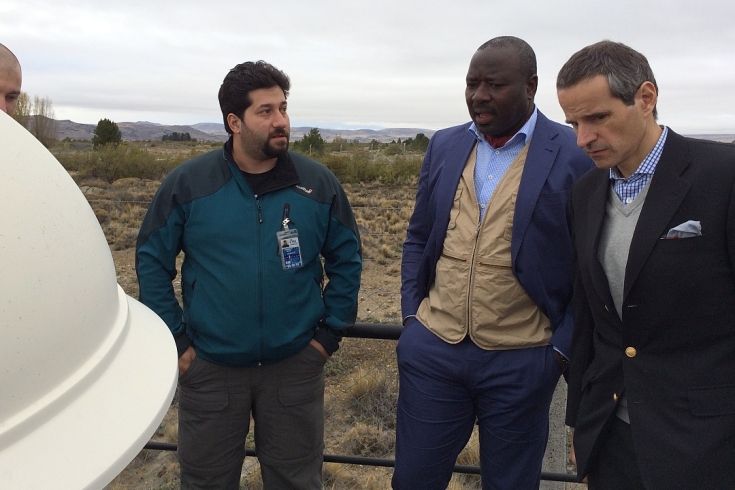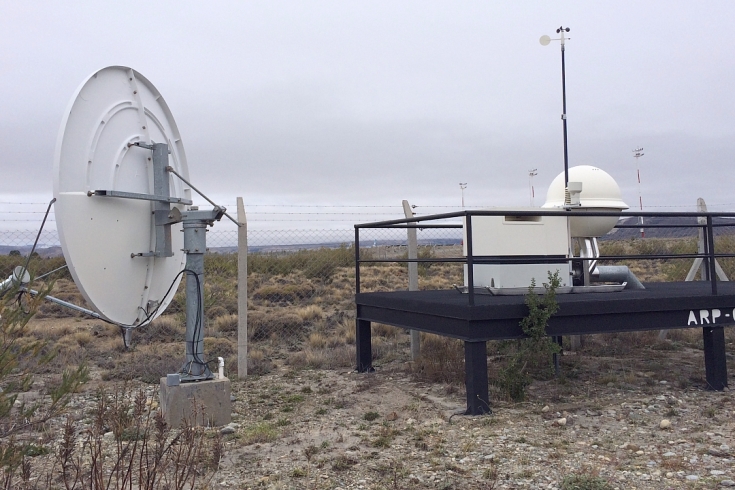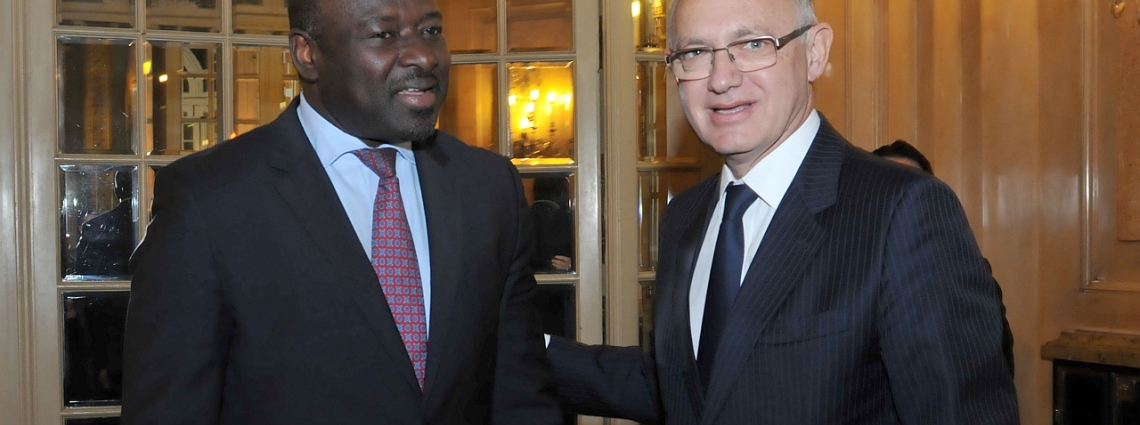CTBTO Head in Argentina: Meets with Foreign Minister and visits CTBT stations

Héctor Timerman, Minister of Foreign Affairs of Argentina (right) and CTBTO Executive Secretary Lassina Zerbo

Visiting radionuclide station RN03 in Bariloche. Right to left; Ambassador Rafael Grossi, CTBTO Executive Secretary Lassina Zerbo and RN03 station operator.
”By undertaking to complete its network of CTBT monitoring stations soon and extending steadfast political support for the Treaty, Argentina has taken up a leadership role that, I have no doubt, will make a strong and tangible contribution to efforts towards the universalization and entry into force of the CTBT."

Radionuclide station RN03 in Bariloche, Argentina.
17 Apr 2014
